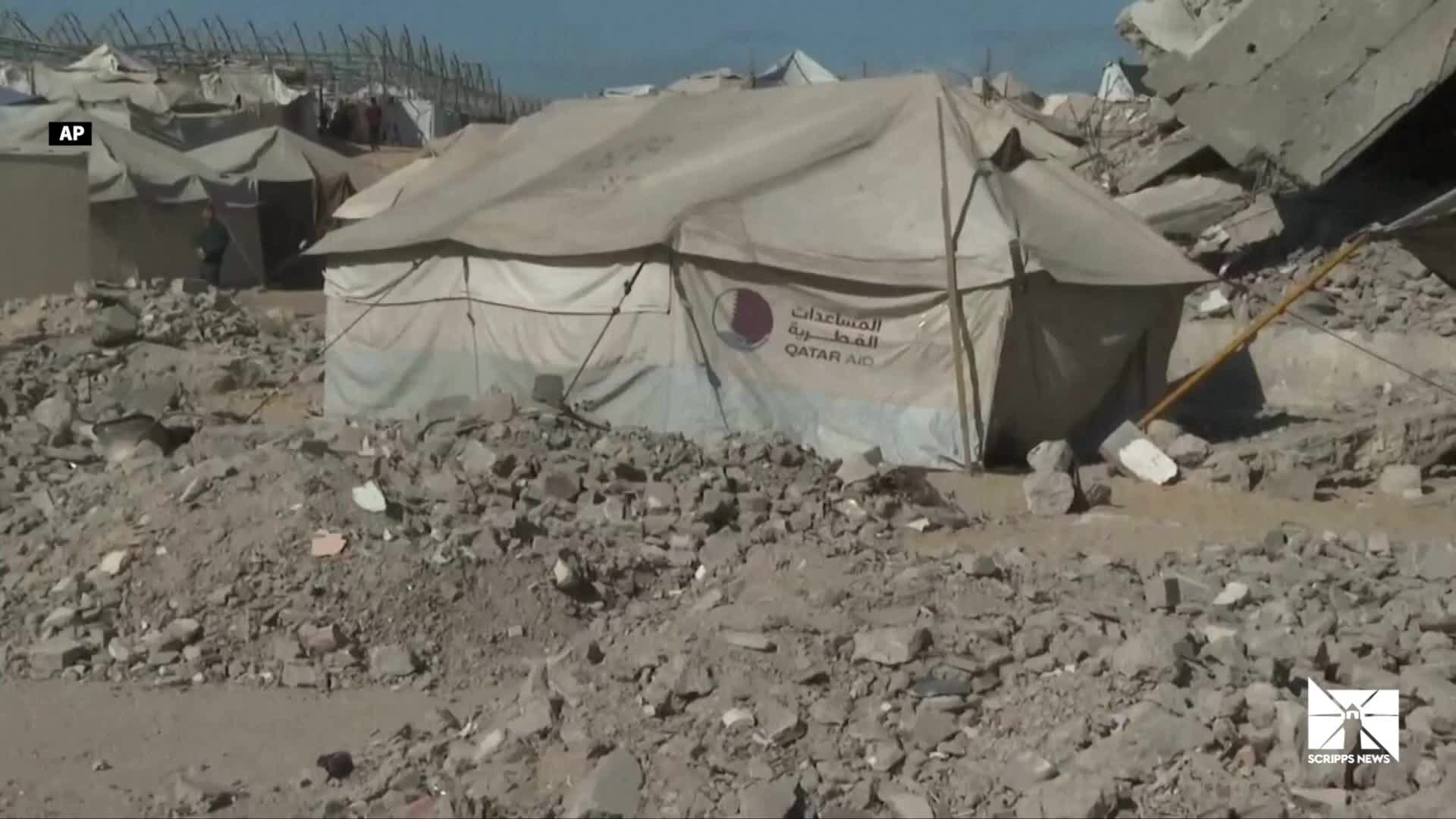Israel on Wednesday cut the number of aid trucks allowed into Gaza from 600 to 300 a day, dealing a major blow to humanitarian efforts already struggling to address the deepening crisis.
Israel blamed the reduction on Hamas, saying the group has failed to return all of the bodies of hostages as required under the ceasefire agreement.
At least 600 aid trucks a day are needed to address the humanitarian crisis in Gaza, Mara Kronenfeld, executive director of UNRWA USA, told Scripps News.
"The organization I work with has close to 6,000 trucks of emergency food aid, medical aid and shelter items that are sitting literally meters, in some cases, outside of the Rafah border," Kronenfeld said.
Multiple humanitarian organizations say the current flow of aid — including food, medicine and other essential supplies — is insufficient to meet the humanitarian crisis in Gaza. Some groups have been unable to get supplies into the region this week.
"It's a race against time," James Hoobler, the humanitarian policy advisor at Oxfam America, told Scripps News. "We're talking about people that are severely malnourished. We're talking to people that don't have shelter, people that are in really just terrible overcrowded conditions."
"We haven't been able to get in enough tents for people whose homes have been damaged or destroyed. And we're talking about, again, just the interaction of malnutrition and disease and dehydration and the collapse of the healthcare sector," Hoobler added.
According to the United Nations, the plan to scale up aid includes hundreds of trucks to deliver 170,000 metric tons of food, medicine and other supplies. The plan also calls for providing cash for 200,000 families to cover basic food needs, restoring the water grid, and distributing thousands of tents in preparation for winter.
International humanitarian groups like Human Appeal emphasized the need for immediate aid at scale.
"Yes, we'd been able to get aid in, but is it enough to feed a population of 1.7 million? No. It wasn't enough and it never will be. We need an insurmountable amount of aid to be able to really satisfy the needs of the people that are on the ground," Zaheer Khan, global director of fundraising at Human Appeal, told Scripps News.
Khan also said humanitarian workers need secure passages as well as multiple corridors to get aid into Gaza.
"We welcome this corridor of aid to be able to get in. And we just hope that this ceasefire remains intact so we can save as many lives as we can and bring some hope back to the region," Khan said.





